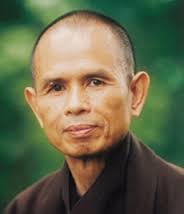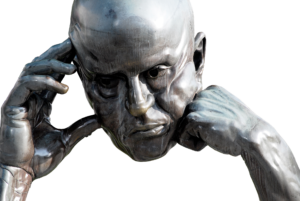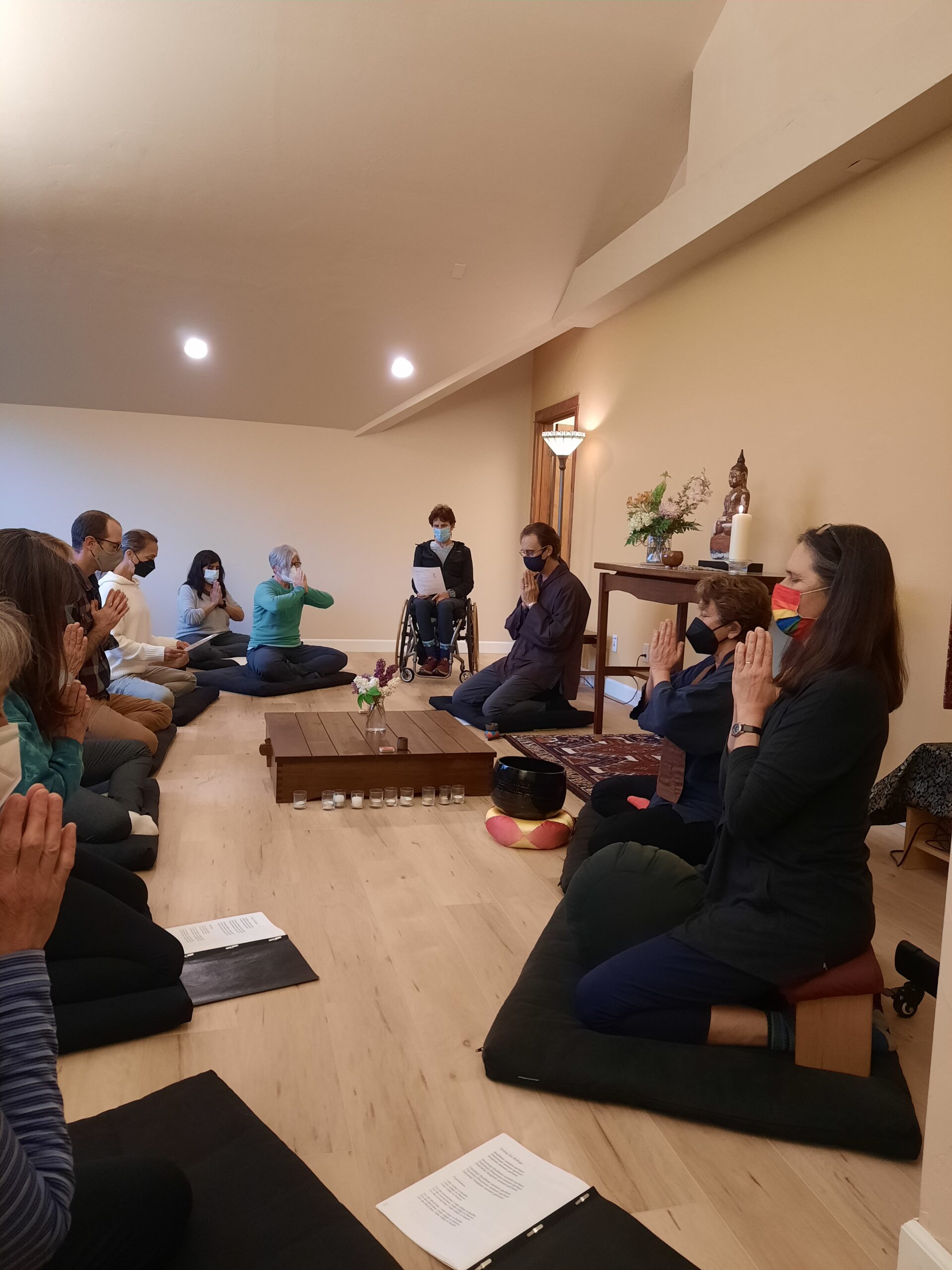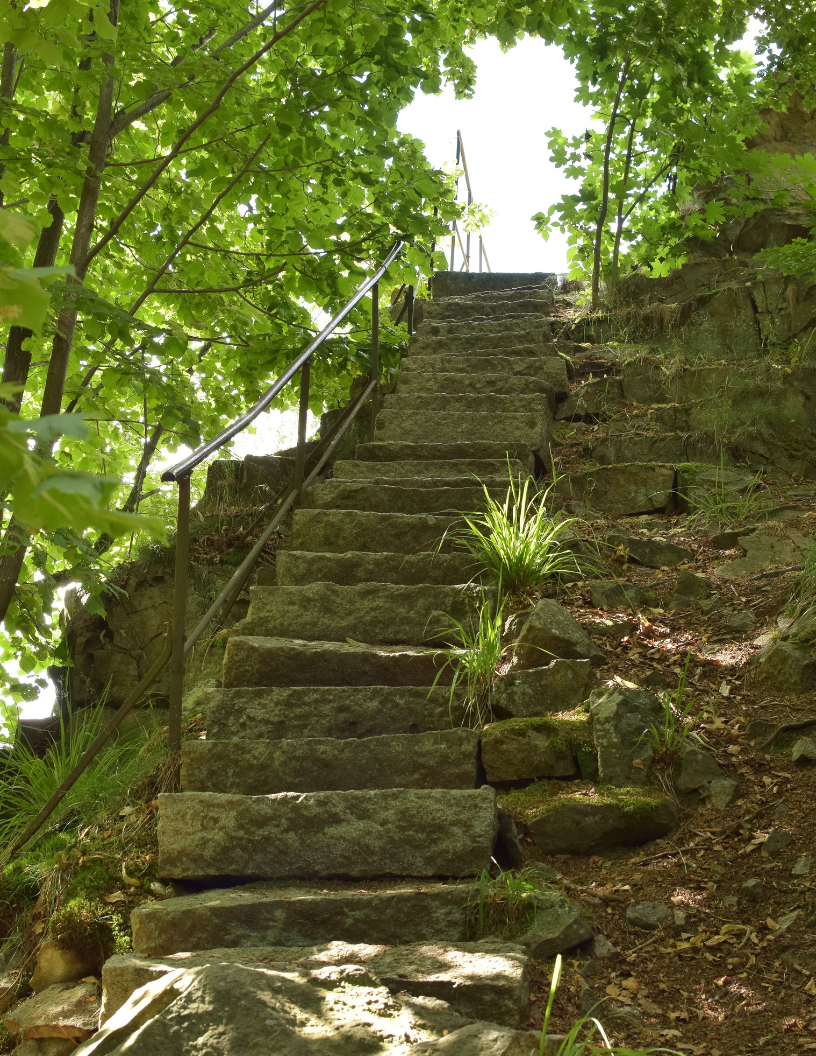The Bozeman Insight Community (BIC) will not meet tomorrow, Thursday, August 29. Please join them next week on September 5th! If you want to make sure and get update from BIC directly, you can sign up for their mailing list here.

The Bozeman Insight Community (BIC) will not meet tomorrow, Thursday, August 29. Please join them next week on September 5th! If you want to make sure and get update from BIC directly, you can sign up for their mailing list here.

Joining Rivers Sangha will NOT meet on Monday, September 2. Please join them the following week, September 9, for a recitation of the Five Mindfulness Trainings.

Joining Rivers Sangha follows Thich Nhat Hanh’s teachings for practicing mindfulness in order to manifest joy, peace, and compassion in our relationships and daily lives.
All are welcome, and we offer brief instruction and guided meditations as needed to develop our practice and nurture sangha energy. In addition to sitting and walking meditation, we enjoy a special practice each week, and learn from one another through Dharma Sharing
Please visit Plum Village online for more about our tradition, including practice resources and talks.
Open Way Sanghas are the family of Plum Village practice groups here in Montana, offering semi-annual retreats and days of mindfulness.
Practice leader Steve Allison-Bunnell (True Spring Branch) is an ordained member of the Core Community of the Plum Village Order of Interbeing.
Email bozemantnh@gmail.com with questions or to join our email list and receive Zoom links and weekly announcements.
6:45 PM Gather / Fellowship
7:00 Sitting (20 minutes)
7:20 Walking (10 minutes)
7:30 Special Practice (30 minutes) Rotation between Five Mindfulness Trainings recitation, sutra reading, guided meditation and Tea Ceremony
8:00 Dharma Sharing (30 minutes)
8:30 End
This Dharma Thought is offered by Steve Allison-Bunnell of the Joining Rivers Sangha which meets Mondays at 7PM.
A deluge of misinformation, along with heroic attempts to debunk it, constantly sweeps over us. It may feel like “alternative facts” have reached an all-time high, aided by AI and social media. But when we return to the teachings of the Buddha, we are reminded that self-serving misinformation from those with power, be they religious or political figures, is nothing new. He repeatedly reminds his students not to solely take his word for how to attain liberation from suffering. He also keeps the focus on looking deeply into the causes of our own delusion and confusion before judging others. The question, “Is it true?” is best first applied to our own interpretations of our perceptions. To answer it necessarily means stopping to short-circuit our scripted responses and triggers and softening our inner critic. Where do you make space for examining your assumptions? How do you give yourself the grace to re-see something you thought was true? What happens when you do?

This Dharma Thought on “Metta Like You Mean It” is offered by Steve Allison-Bunnell of the Joining Rivers Sangha which meets Mondays at 7PM.
A former President and current candidate nearly assassinated; questions about the future of the sitting President’s candidacy; relentless death and destruction in Gaza, Ukraine, and elsewhere — never has the world, never have our leaders, and never have we needed more to cultivate and amplify lovingkindness toward one another. One source translates the Pali word “metta” as “active interest in others.” I like how that phrasing emphasizes the fullness and commitment involved in practicing it. It goes beyond casual “friendliness” to soften blame and anger in order to genuinely wish happiness for all beings, starting with their safety and basic well-being. Practicing Metta emphatically extends that wish both to those we already care for and those we dislike. What happens when you direct lovingkindness to someone you judge or even hate? If you don’t think you can go that far, might you still try? How is it different to practice in this moment?

This Dharma Thought is by Steve Allison-Bunnell, the leader of the Joining Rivers Sangha which meets on Mondays at 7PM.
Sitting at the edge of Mystic Lake up the West Rosebud this weekend, watching drinkable water slowly dribble from our filter, I had two options: One was to feel impatient that I was having to work so hard for so little, and to berate myself for not cleaning the filter before leaving home. The other was to make this repetitive motion into a working mediation, something Thay (Thich Nhat Hanh) recommends over and over again. I chose the latter, matching my breath with each stroke of the pump, pausing for the chamber to fill before pushing it back out, feeling the steady rhythm of my arms moving. The view of the Absaroka-Beartooths surrounding me filled me with pure amazement. Seeing more deeply, I was aware of the uncountable snowflakes and raindrops from the peaks above that had filled this lake, allowing me to be refreshed. I noticed the morning light shift on the trees in front of me. And yes, my water bag did fill bit by bit. I was just there. When did you last give yourself to a task you could have otherwise been frustrated by? What did you experience instead of boredom?

This Dharma Thought on Sound Meditation is offered by Steve Allison-Bunnell of Joining Rivers Sangha.
Silent meditation is so central to Zen practice that it’s easy to forget that several other traditions use sound, from bells to mantras, as an object of contemplation. So it was a beautiful gift to experience the Summer Solstice Soundgate practice, featuring crystal bowls, bells, an enormous gong, chimes, and a glass triangle. As the sound penetrated my entire body, my intuitive mind began to associate the sounds with different aspects of consciousness. Rattling shells became the skittering thoughts of monkey mind, allowing me to smile at them. Shimmering chimes became a portal to memory, and numerous moments, some long-ago, others recent, some still filled with shame, others with joy, paraded across my mental movie screen. The harmonizing crystal bowls were so quieting that I sat motionless for almost 40 minutes, possibly a new personal record. How does sound help you meditate? What sounds evoke certain feelings and images for you?

Our next SoundGate (Sound Meditation program) will be Friday, July 26 at 7pm and will feature Brian Sparks and Kathleen Karlsen.
Kathleen is a mantra practitioner, kirtan leader, composer, and artist focused on the transformative power of the arts. She has three levels of training from the Kirtan Leadership Institute. Kathleen has led regular kirtans, mantra events, and workshops for the last six years. She joins us for an hour of Buddhist chants to the sacred sounds of the harmonium.
Brian received his spiritual teaching from several masters in the Nyingma tradition of Tibetan Buddhism. His teachers blessed his bowl work by giving him the specific “Prayer of Aspiration” and granted him many Buddhist empowerments. In person only. No registration necessary. Donations gratefully accepted.
Chants will be provided for those who would like to chant in unison — this is an evening where your voice is welcome!
More about Kathleen can be found on her website here.
The BDC Community Meeting is your chance to learn more about how the BDC operates, what the staff does, where the money goes, and give input for our future direction! This meeting is so important that we hold it twice! Once on Sunday, April 21 from 4-5:30 PM and again on Monday, April 22 from 7-8:30 PM. You can attend in person or via Zoom. Both meetings will have the same content.

The Insight Community’s Series on Dependent Origination, taught by Suzanne Colón, was to begin on Thursday, March 14th but will run April 4 – May 2 instead. Thanks for your patience and understanding.
Thanks, and May you be well!
This Dharma Thought is offered by Steve Allison-Bunnell, an ordained lay member of the Plum Village Order of Interbeing and the practice leader of the Joining Rivers Sangha at the Bozeman Dharma Center. This article was originally published in the Bozeman Daily Chronicle on February 10, 2024.
The old cliché, “travel is broadening,” really is true. Long before I knew anything about Buddhist practice, I remember looking at a phone on my first trip to England and thinking, “Wow, there’s more than one way to design a telephone!” But travel only broadens you if you let it. After returning from a European tour, a family friend pronounced, “Those Italians, they’re different.” I had noticed a difference and been intrigued by the possibilities. This friend had seen differences and entrenched his own preferences even more strongly.
Mindfulness is nothing more than noticing things and being aware of our reactions to them. We practice mindfulness first with meditation, since it is often easier to be aware of our own breath and body, and then by extending our awareness to the world around us. The trick to being present, whether traveling to an exotic place or driving to work, is to hold that awareness softly and without reflexive judgement. The Buddha taught that when we can see the world as it is, rather than how we want it to be, our sense of dissatisfaction (“suffering” in classic Buddhist parlance) diminishes.
Travel is the perfect opportunity to cultivate “Beginner’s Mind” — seeing the world in every moment as if for the first time, filled with wonder and delight, and free from preconceptions. Alternatively, if we cling to our habitual expectations, travel will almost certainly violate them and we might as well not have left home.
I recently got the gift to practice awareness and surrender to the moment during a natural history tour to the Caribbean with my son’s school. Literally each second of every day was an invitation to be present and truly see where we were, from coral reefs to tropical rain forests. No two underwater formations were identical, and every tree in the jungle seemed unique. The curiosity and openness of our fellow travelers helped sustain that presence. Knowing that the weather could quickly change our itinerary, we had to be flexible in what we expected. I was grateful that my established practice of mindfulness helped me not worry about what would happen next.
The trick when we come home after reveling in the freedom and novelty of travel is to maintain that expansive attitude even in our familiar surroundings and routines. It’s so easy to fall back into our habitual reactions and stories. And it’s also so easy to think we have to “get away from it all” to be engaged and happy again. The Venerable Thich Nhat Hanh taught that the essence of mindfulness is to be confident that we always have enough to be happy in the present moment. With that in view, we don’t need an exotic trip to see the world afresh.

Steve Allison-Bunnell with Joining Rivers Sangha shares this dharma thought:
I like to think I am not a greedy person, but when it comes to photography, my greed knows no bounds. I love to make photographs and I hate to delete them. I faced this while trying to pick images for our annual family photo book. I wondered, “What does it mean to edit a photo collection mindfully?” On one hand, non-discrimination tempts me to think that all of the photos I made are beautiful in their own way. Keep them! But then, looking deeply and non-attachment lead me to joyfully throw away all but the few that most clearly evoke the moment that was the present. Ultimately, I can let go of the rest because those few are actually enough. The ones I keep are even more beautiful because they are not diluted by irrelevant variations. What collection do you dislike weeding? How do you see the truly special items?
